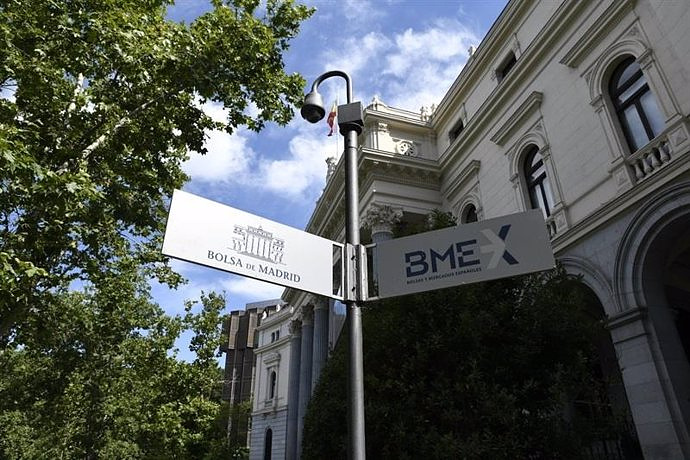MADRID, 12 Oct. (EUROPA PRESS) -
Congress votes this Thursday on the bill to promote the ecosystem of emerging companies, known as the 'Startup Law', after approving more than 70 amendments to the rule, although none affects the tax incentive regime provided by the Government .
The initiative reaches the Committee on Economic Affairs and Digital Transformation, but since it is submitted to the Plenary Session of Congress, it must undergo another round of votes in the Chamber to be approved and sent to the Senate.
Until now, the Government has agreed changes, mainly with Cs (13), Junts (4), PP (3), Esquerra Republicana (3) and PDeCAT (3), and another 27 transactional amendments with these groups, in addition to another 19 agreed between PSOE and United We Can.
These changes have served to incorporate cooperatives into the emerging business regime, allow positive administrative silence in the recognition by Enisa (Empresa Nacional de Innovacion, S.A.) of a 'startup' or deepen the criteria when to assess the degree of innovation and scalability of a business.
Other changes recognize the ability of the Tax Agency to check whether the necessary requirements to benefit from tax incentives are met and remain in force and raises the threshold of the penalty provided to reverse these benefits when there is a conviction of one of the partners, who only It would apply if the convicted person has at least 5% of the capital.
On the other hand, access to benefits for highly qualified professionals is equalized for people with professional training studies and the requirements for companies to have these workers are eliminated and the permit is extended for another year, up to a total of two. planned so that foreign students of higher education can find employment or start a business project once they finish their studies.
However, none of the changes alter the tax benefits regime contemplated in the project approved by the Council of Ministers, with more favorable taxation for both companies and workers.
Far from expanding these incentives, the groups have agreed to end the exemption from notarial or registration fees provided for entrepreneurs who take advantage of the Emerging Companies Statute and complete their processing electronically.
According to the change introduced, to which Europa Press has had access, notarial and registry fees will cost these companies 60 and 40 euros, respectively, as long as the company's share capital does not reach 3,100 euros. The change originates from an amendment to the PDeCAT, and had also been proposed by Vox.
On the other hand, the rule has also served the Government to promote two legal changes unrelated to the new startup regulations, such as the transposition of the fiscal transparency directive for multinationals and the creation of the Spanish Intelligence Supervision Agency Artificial (AI).
In the first case, any parent company of a group that exceeds 750 million euros in annual income is obliged to detail separate information for each Member State in which it operates on its income, the amount of profits or losses before taxes , or the amount of tax paid.
Regarding the new agency, its objectives include the supervision of the start-up, use or commercialization of systems that include AI and, especially, those that may pose significant risks to health, safety and fundamental rights, and its capacity inspector and sanctioner.

 Exploring Cardano: Inner Workings and Advantages of this Cryptocurrency
Exploring Cardano: Inner Workings and Advantages of this Cryptocurrency Seville.- Economy.- Innova.- STSA inaugurates its new painting and sealing hangar in San Pablo, for 18 million
Seville.- Economy.- Innova.- STSA inaugurates its new painting and sealing hangar in San Pablo, for 18 million Innova.- More than 300 volunteers join the Andalucía Compromiso Digital network in one month to facilitate access to ICT
Innova.- More than 300 volunteers join the Andalucía Compromiso Digital network in one month to facilitate access to ICT Innova.-AMP.- Ayesa acquires 51% of Sadiel, which will create new technological engineering products and expand markets
Innova.-AMP.- Ayesa acquires 51% of Sadiel, which will create new technological engineering products and expand markets Illa does not clarify whether he will agree with Junts and Aragonès and Rull face a lack of unity
Illa does not clarify whether he will agree with Junts and Aragonès and Rull face a lack of unity At least twelve Palestinians die in Israeli bombings against Rafah
At least twelve Palestinians die in Israeli bombings against Rafah Gaza War | Direct: The Israeli Army takes the Palestinian part of the Rafah crossing
Gaza War | Direct: The Israeli Army takes the Palestinian part of the Rafah crossing Prosegur Cash will distribute the first payment of its total dividend of 0.0404 euros on May 14
Prosegur Cash will distribute the first payment of its total dividend of 0.0404 euros on May 14 How Blockchain in being used to shape the future
How Blockchain in being used to shape the future Not just BTC and ETH: Here Are Some More Interesting Coins Worth Focusing on
Not just BTC and ETH: Here Are Some More Interesting Coins Worth Focusing on UMH researchers are working on a high-quality apricot crop that requires less irrigation water
UMH researchers are working on a high-quality apricot crop that requires less irrigation water The UPV develops an application to improve the quality of life of patients with glioblastoma
The UPV develops an application to improve the quality of life of patients with glioblastoma A sensor system obtains the fingerprint of essential oils and detects if they have been adulterated
A sensor system obtains the fingerprint of essential oils and detects if they have been adulterated Faraday UPV presents the 'Origin' rocket to exceed 10 km of flight: "It is the beginning of the journey to space"
Faraday UPV presents the 'Origin' rocket to exceed 10 km of flight: "It is the beginning of the journey to space" A million people demonstrate in France against Macron's pension reform
A million people demonstrate in France against Macron's pension reform Russia launches several missiles against "critical infrastructure" in the city of Zaporizhia
Russia launches several missiles against "critical infrastructure" in the city of Zaporizhia A "procession" remembers the dead of the Calabria shipwreck as bodies continue to wash up on the shore
A "procession" remembers the dead of the Calabria shipwreck as bodies continue to wash up on the shore Prison sentences handed down for three prominent Hong Kong pro-democracy activists
Prison sentences handed down for three prominent Hong Kong pro-democracy activists ETH continues to leave trading platforms, Ethereum balance on exchanges lowest in 3 years
ETH continues to leave trading platforms, Ethereum balance on exchanges lowest in 3 years Investors invest $450 million in Consensys, Ethereum incubator now valued at $7 billion
Investors invest $450 million in Consensys, Ethereum incubator now valued at $7 billion Alchemy Integrates Ethereum L2 Product Starknet to Enhance Web3 Scalability at a Price 100x Lower Than L1 Fees
Alchemy Integrates Ethereum L2 Product Starknet to Enhance Web3 Scalability at a Price 100x Lower Than L1 Fees Mining Report: Bitcoin's Electricity Consumption Declines by 25% in Q1 2022
Mining Report: Bitcoin's Electricity Consumption Declines by 25% in Q1 2022 Oil-to-Bitcoin Mining Firm Crusoe Energy Systems Raised $505 Million
Oil-to-Bitcoin Mining Firm Crusoe Energy Systems Raised $505 Million Microbt reveals the latest Bitcoin mining rigs -- Machines produce up to 126 TH/s with custom 5nm chip design
Microbt reveals the latest Bitcoin mining rigs -- Machines produce up to 126 TH/s with custom 5nm chip design Bitcoin's Mining Difficulty Hits a Lifetime High, With More Than 90% of BTC Supply Issued
Bitcoin's Mining Difficulty Hits a Lifetime High, With More Than 90% of BTC Supply Issued The Biggest Movers are Near, EOS, and RUNE during Friday's Selloff
The Biggest Movers are Near, EOS, and RUNE during Friday's Selloff Global Markets Spooked by a Hawkish Fed and Covid, Stocks and Crypto Gain After Musk Buys Twitter
Global Markets Spooked by a Hawkish Fed and Covid, Stocks and Crypto Gain After Musk Buys Twitter Bitso to offset carbon emissions from the Trading Platform's ERC20, ETH, and BTC Transactions
Bitso to offset carbon emissions from the Trading Platform's ERC20, ETH, and BTC Transactions Draftkings Announces 2022 College Hoops NFT Selection for March Madness
Draftkings Announces 2022 College Hoops NFT Selection for March Madness




























